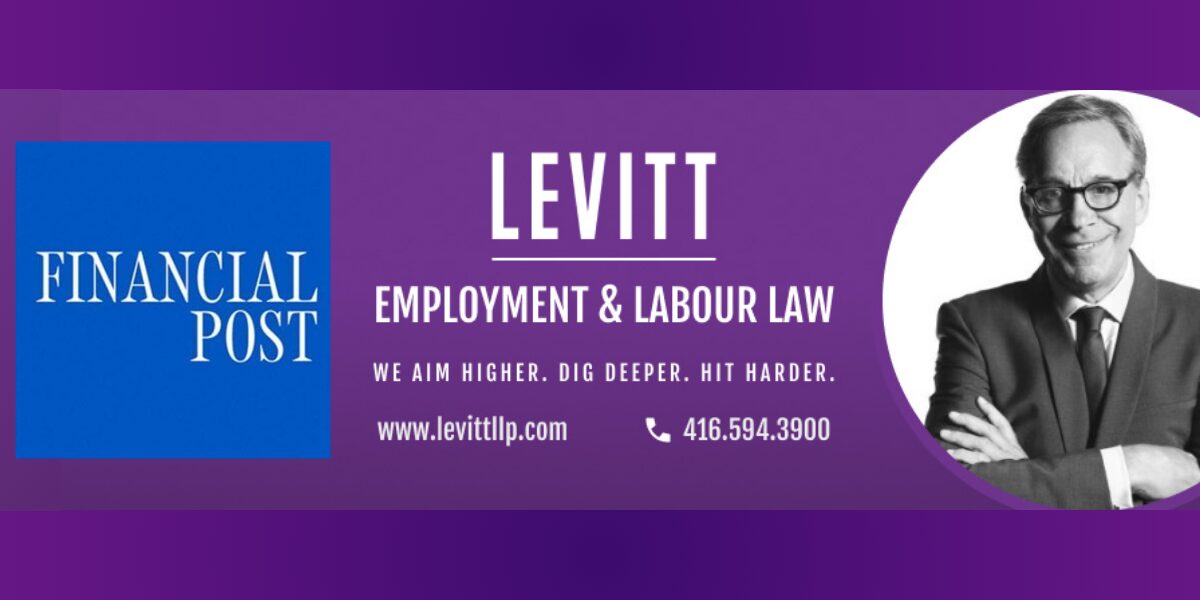By Howard Levitt
Charlie Kirk’s murder sparked a crackdown on political speech in the workplace. Canada is not immune
An employee tweets after Charlie Kirk‘s murder, “Good riddance.” The employer seizes on the phrase and the employee is gone by day’s end.Let’s begin with the misconception we hear most often from employees:“But that was on my personal account!”
They believe that slapping the word “personal” onto a Twitter or Instagram bio somehow inoculates them from professional consequences.
It doesn’t.
Just ask the professor at the University of Toronto who was placed on leave last week after posting that she condoned the Kirk’s murder. She didn’t write it from the classroom or during office hours. She simply expressed a view — a revolting one, yes, but one she presumably assumed was hers to express.
What she forgot — what many Canadians forget — is that free speech does not mean freedom from consequences. Especially employment ones.
In Canada, you are entitled to your opinion, but not your job. Employees are absolutely allowed to hold and express personal political views. But employers are just as entitled — and in many cases obligated — to hold their employees accountable when those views damage the company’s reputation, poison the workplace or violate internal codes of conduct.
It’s not about suppressing views. It’s about protecting the business.
Take the recent reaction from U.S. political leaders. Following Kirk’s assassination on Sept. 10, Vice-President JD Vance called for citizens to “call their employer” if they see people celebrating the killing online. Within days, multiple people were suspended or fired in both the U.S. and Canada — including a U.S. Secret Service employee.
These aren’t isolated incidents. This is increasingly common in the present and will be even more so in the future.
In the age of screenshots and viral outrage, failing to respond to an employee’s offensive online activity is not neutral. It’s complicity. If someone posts something vile and you do nothing, don’t be surprised when your customers, clients or shareholders assume that silence equals endorsement.
When an employee’s online conduct undermines the company’s reputation, business relationships or public trust, employers not only can act, they must.
Another favourite line from employees: “But I posted it on my own time!”
That’s irrelevant. In employment law, context is everything. If your social media post causes a rift within your team, makes your colleagues feel unsafe or brings reputational harm to your employer, when or where you posted it is immaterial.
You could be on a beach in Bali or in your own basement. If the post causes trouble, that trouble extends into your workplace
Let’s break it down. Termination for social media activity becomes legally justified when a post
- Harms the employer’s reputation
- Violates a code of conduct or social media policy
- Creates a toxic work environment
- Alienates clients, co-workers or stakeholders
- Promotes hate, discrimination or violence
Depending on the severity of the harm, this can lead to discipline, suspension or even termination for cause — with no severance.
The bar for “just cause” remains high. But repeated violations, hateful commentary or posts that clearly violate signed employee agreements can absolutely meet it.
The more senior the employee, the greater the damage — and the easier it is to justify dismissal. A junior analyst crabbing online is bad. A director doing it? That reflects directly on the brand.
High-profile, public-facing and client-facing employees are held to higher standards — as they should be.
Most employees have signed on to company codes of conduct that include policies on harassment, discrimination and increasingly, social media.
If you’ve signed it, you’ve agreed to it. Claiming ignorance won’t save you when the screenshots surface.
If your employer has no clear policy on social media conduct, they should. But even without one, the general principles of workplace civility, non-discrimination and reputational protection still apply.
If your comment online would be grounds for discipline in the office, it’s grounds for discipline outside of it.
If you are an employer and have not reviewed your social media policy recently, you are already behind. Ensure that:
- Social media rules are crystal clear
- They apply both in and out of the office
- They define what constitutes unacceptable conduct
- Employees know what the consequences are
Because when the next political firestorm hits — and it will — you don’t want to be stuck explaining why your company stood by while one of its own cheered a political assassination online.
Final word
We live in a world where everyone is watching — even when you think they aren’t.
The myth that your “personal” account protects you from professional consequences has been shattered. If you want to test that theory, go ahead. Post something outrageous and wait for the HR department to call.
Just don’t act surprised when they do.
Howard Levitt is senior partner of Levitt LLP, employment and labour lawyers with offices in Ontario and Alberta, and British Columbia. He practices employment law in eight provinces and is the author of six books, including the Law of Dismissal in Canada. Jeffrey Vandespyker is an associate at Levitt LLP.

